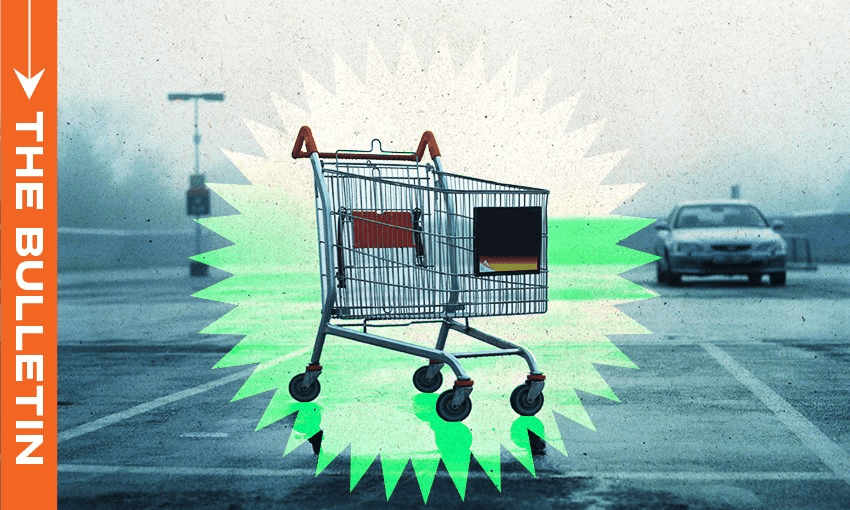The government has set its sights on luring a duopoly disruptor, explains Stewart Sowman-Lund for The Bulletin.
To receive The Bulletin in full each weekday, sign up here.
Welcome to my final edition of The Bulletin! Don’t worry, this newsletter will still arrive in your inbox as usual next week (maybe even earlier than I send it out, though I can’t speak for the new editor). More self-reflection below, but for now, let’s start with supermarkets.
As reported by The Post’s Luke Malpass, the government has once again put the supermarket duopoly “on notice”. Finance minister Nicola Willis, delivering a speech at the New Zealand Economics Forum yesterday, signalled the government wanted to help see a third major supermarket chain open stores in New Zealand in an effort to bring prices for consumers down. “We owe it to Kiwi shoppers to help remove the barriers that could get in the way of a new entrant,” she said.
What’s new?
If you’re getting a sense of déjà vu here, you’re not wrong. As Jenna Lynch reported for ThreeNews last night, there’s little new in what the finance minister talked about yesterday. There’s a flashy new website – Going for Growth – but it basically just lays out action already taken and cheekily asks the public for suggestions on how to bolster the economy at the bottom.
The supermarket duopoly has been on notice for quite some time, with the former Labour government appointing a grocery commissioner, Pierre van Heerden, tasked with overseeing the industry. Little meaningful action was actually taken by Labour before it left office, though it did clamp down on land covenants. The coalition has previously been at loggerheads on how best to address supermarket competition – Act calling for “less regulation”, while National minister Andrew Bayly endorsing the grocery commissioner’s argument for more. Willis told those gathered yesterday she’s interested in cutting red tape to make it easier for a new operator to open up. Some of this has been flagged before, such as the long-planned revamp of the Resource Management Act. BusinessDesk’s Pattrick Smellie also reported (paywalled) that a “long tussle” between the coalition over how to liberalise the Overseas Investment Act has been resolved – we’re likely to hear more on this in the lead-up to the government’s foreign investors summit.
It might not be so easy
There are likely to be some difficulties that legislation itself can’t fix. As Newsroom’s Andrew Bevin reported in 2023, the existing supermarket duopoly holds vast amounts of land for its hundreds of stores. Any new entrant would need to open more than just a handful of stores to be a real competitor. Costco, for example, has proved hugely successful as a business from its sole base in West Auckland, but outside that very specific location, there has been little flow on effect. And, as noted in this article from the Herald, Costco is not often used by consumers as a replacement for a weekly shop anyway.
Tex Edwards, the man responsible for disrupting the telecommunications sector through the establishment of 2Degrees, told The Post that about 140 existing supermarkets would need to be relinquished to a rival in order to make a real dent in the duopoly. Quite simply, he explained, New Zealand is over-supplied with supermarkets already. “We have more per capita than other OECD nations. You can’t mount a business case to build a new chain.”
It will take time
The grocery sector is one of a handful the government (and its predecessor) has routinely gone after – along with banks, energy companies and fuel providers. As Jenna Lynch argued last night, that’s because they all have a real impact on consumers and if prices go up, the polls will trend down. Action is going to have to happen quicker if the government wants to claim victory here. As Tex Edwards said, while the finance minister’s comments are promising, “these things aren’t done overnight”. Writing for The Spinoff in 2022, Bernard Hickey noted the various difficulties at play in tackling pain at the supermarket checkout as opposed to breaking up the telecom monopoly. Among them, a “multiplicity of product lines, ownership types, physical supply chains, retail outlets and brands”.
Even if a third entrant entered the market, the impact wouldn’t be felt immediately. Any new supermarket would have to scale up dramatically. In Australia, explained Lincoln University’s Alan Renwick in an interview with Newsable last year, it took around a decade for Aldi to disrupt a similar duopoly system. “They have grown steadily, [but] it’s only now that they’re beginning to challenge [the other supermarkets].” The right noises are being made by the government, but it’s going to take more than words.
